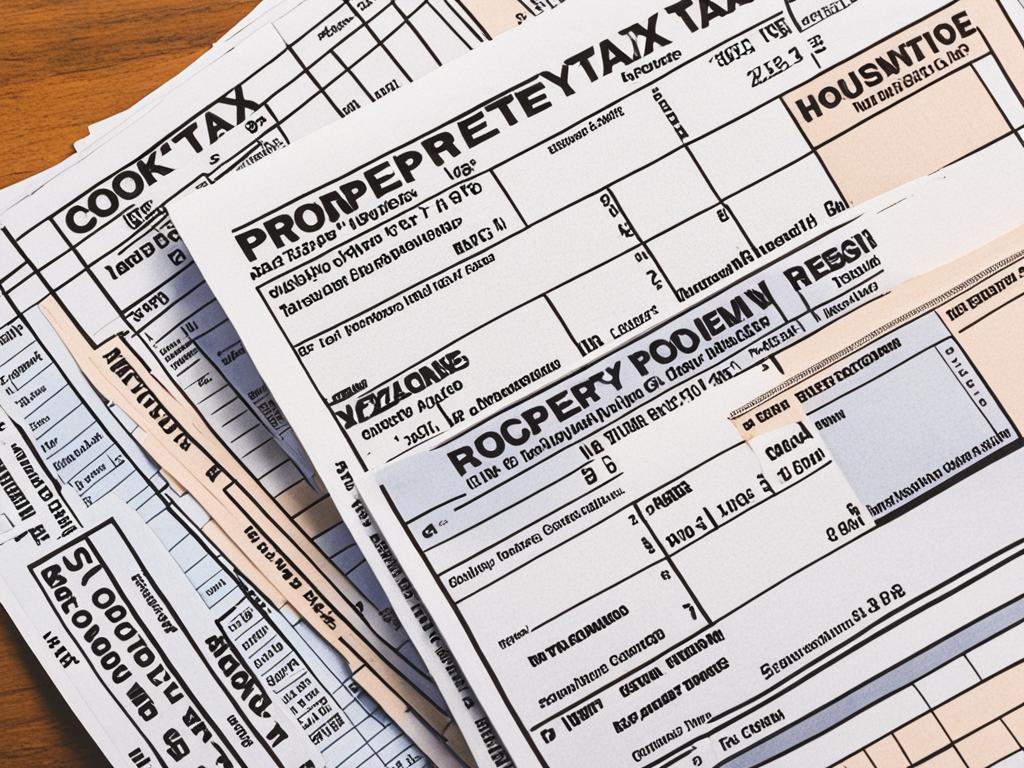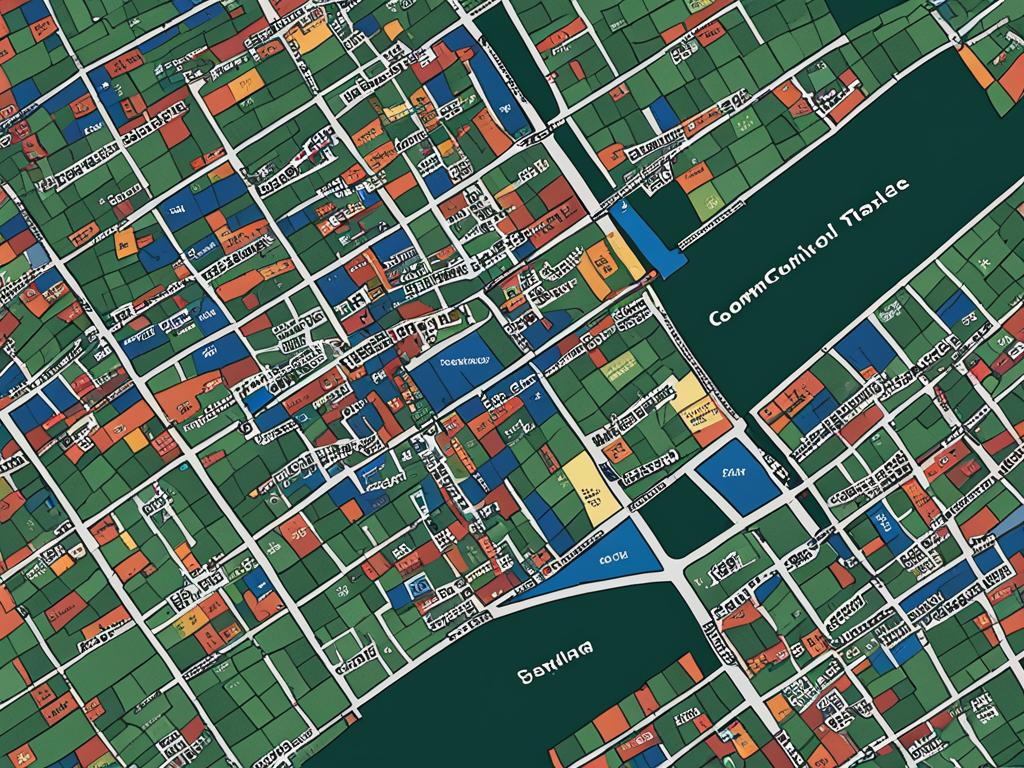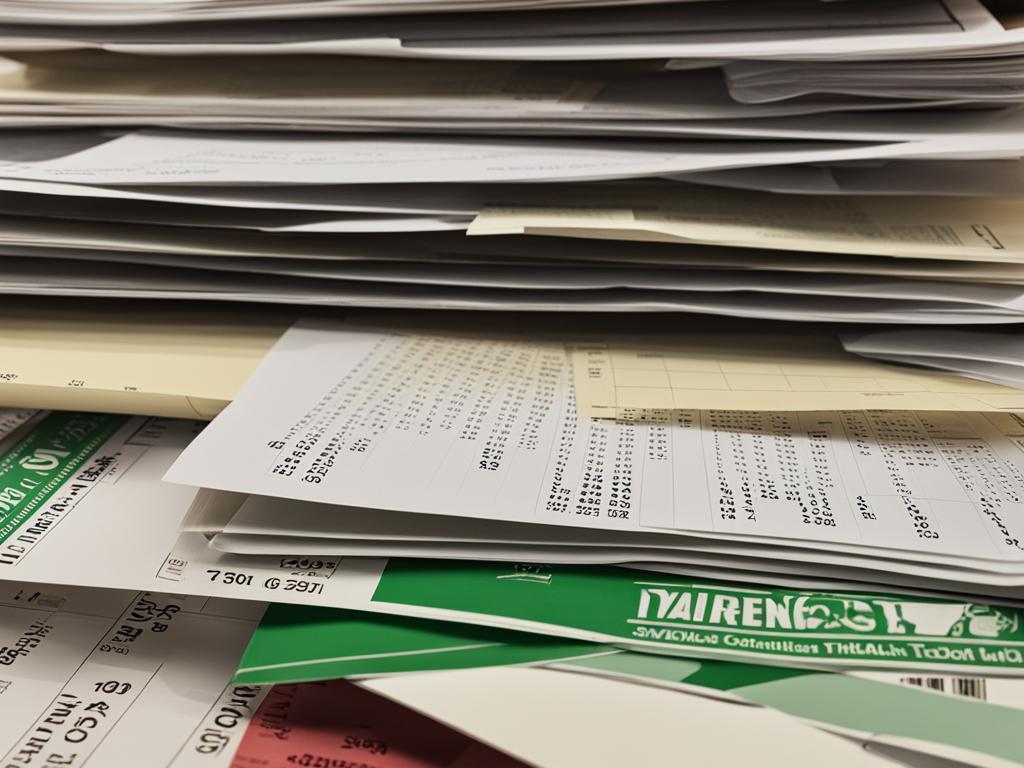Cook County Property Tax Bills: Key Facts and Dates
Officials from the Cook County property tax system have announced important information regarding property tax bills for Tax Year 2022. It is expected that the second installment property tax bills will be available by November 1, 2023. These bills, totaling nearly 1.8 million, will be accessible online and sent by mail, with a due date of December 1, 2023.
Due to the impact of the COVID-19 pandemic and technological changes, there have been adjustments to the timeliness of property tax processes. However, Cook County is dedicated to keeping property owners informed about key dates to ensure a smooth and transparent tax payment experience.
- The second installment property tax bills for Tax Year 2022 are expected to be available by November 1, 2023.
- Approximately 1.8 million property tax bills will be released online and by mail.
- The due date for property tax payments is December 1, 2023.
- The COVID-19 pandemic and technological changes have affected the timeliness of property tax processes.
- The Cook County property tax system is committed to keeping property owners informed about key dates.
Important Dates for Cook County Property Tax Bills
When it comes to Cook County property tax bills, staying aware of important dates is crucial. Below are the key dates you need to keep in mind:
Tax Bill Availability
The second installment property tax bills for Tax Year 2022 in Cook County are expected to be available by November 1, 2023. These bills, totaling nearly 1.8 million, will be released online and by mail.
Due Date
The due date for Cook County property tax payment is December 1, 2023. Property owners are required to ensure their payments are made by this date to avoid any penalties or late fees.
Assessment Period
The Cook County property tax assessment period typically takes place every three years, with different areas being reassessed each year.
Appeal Deadlines
If you believe your property assessment is incorrect, there are specific deadlines for filing an appeal. The appeal deadlines vary depending on the assessment notices you receive.
Payment Options
Cook County offers several convenient payment options for property tax bills. You can make payments online, by mail, in person, or through designated banks. Alternative payment methods like ACH or wire transfer are also available.
Property Tax Payment Plan
Cook County also provides property owners with the option to enroll in a payment plan to help manage their tax bills more effectively. This plan allows you to pay your property taxes in installments rather than a lump sum.
Penalties for Late Payment
It’s essential to ensure timely payment of your property taxes. Failure to make payments by the due date can result in penalties, interest charges, and even a possible tax lien on your property.
By staying informed about the important dates and options for Cook County property tax payments, you can effectively manage your tax obligations and avoid any potential issues.
Cook County Property Tax Information and Resources
The Cook County Treasurer’s Office offers a comprehensive range of services, information, and resources to help property owners navigate the complexities of property taxes in Cook County. Whether you need to access your property tax bills, check payment status, make online payments, or explore payment options, the Cook County Treasurer’s Office has you covered. In addition, they provide valuable information on exemptions, refunds, property tax relief programs, and property tax appeal board decisions.
One of the key features offered by the Cook County Treasurer’s Office is the ability to access your property tax bills. Property owners can conveniently view and download their tax bills online. This provides easy access to important information such as the amount owed and the due date.
The Cook County Treasurer’s Office also provides a user-friendly online portal where property owners can check the status of their property tax payments. This feature allows you to track the progress of your payments and ensure that everything is in order.
When it comes to making payments, the Cook County Treasurer’s Office offers multiple options to suit your needs. Whether you prefer to make payments online, by mail, or in person, you’ll find a convenient and secure method that works for you. They also provide detailed instructions for each payment option, making the process as smooth as possible.
If you have questions about exemptions, the Cook County Treasurer’s Office is a valuable resource. They provide information on various exemptions available to property owners, such as the homeowner exemption, senior citizen homestead exemption, and persons with disability exemption. Understanding these exemptions can help you reduce your property tax burden.
For property owners who are interested in property tax relief programs, the Cook County Treasurer’s Office offers information and guidance. These programs can provide financial assistance to eligible homeowners, helping them manage their property taxes more effectively.
In certain cases, property owners may need to appeal their property tax assessments. The Cook County Treasurer’s Office provides information on the property tax appeal board and the process of filing an appeal. This information can help property owners understand their rights and options when it comes to challenging their assessments.
To enhance transparency and accountability, the Cook County Treasurer’s Office also provides access to property tax appeal board decisions. Property owners can review these decisions to gain insights into how assessments are determined and how appeals are resolved.
Resources offered by the Cook County Treasurer’s Office:
- Access to property tax bills
- Payment status tracking
- Online payment options
- Information on exemptions
- Property tax relief programs
- Property tax appeal board decisions
Here is an example of a table examining different property tax relief programs offered by the Cook County Treasurer’s Office:
| Program | Eligibility | Benefits |
|---|---|---|
| Homeowner Exemption | Owner-occupied residential properties | Reduces assessed value for property tax calculation |
| Senior Citizen Homestead Exemption | Senior citizens aged 65 or older | Additional reduction in assessed value for qualifying properties |
| Senior Citizen Assessment Freeze Exemption | Senior citizens meeting income requirements | Freezes assessed value, limiting property tax increases |
By taking advantage of the resources provided by the Cook County Treasurer’s Office, property owners can better understand their property taxes, explore available exemptions, and navigate the assessment appeal process. Visit their website for more information and to access these valuable resources.

Understanding Your Cook County Property Assessment
When it comes to property taxes in Cook County, understanding your property assessment is essential. Cook County reassesses properties every three years, with different areas undergoing assessment each year. Property owners receive assessment notices that provide crucial information about their property’s characteristics, fair market value, assessed value, and applied exemptions.
These assessment notices play a vital role in determining property taxes. Property owners can review the assessment details to ensure accuracy and fairness in the valuation. If you believe that your assessment is incorrect or inaccurate, there is an option to appeal the assessment and potentially lower your property tax bill.
Key Information in Assessment Notices
Assessment notices provide property owners with the following key information:
- Property Characteristics: Details about the size, type, and other relevant characteristics of the property.
- Fair Market Value: The estimated value of the property based on current market conditions.
- Assessed Value: The value of the property used to calculate property taxes.
- Applied Exemptions: Any exemptions or deductions applied to reduce the assessed value and lower the property tax liability.
By carefully reviewing this information, property owners can determine if their assessment accurately reflects their property’s value and consider whether an appeal is necessary.
Appealing Your Assessment
If you believe that your property assessment is incorrect, you have the right to appeal. The appeal process allows property owners to provide evidence supporting a lower assessment value, which can result in a reduction of property taxes.
Here are the steps to appeal your Cook County property assessment:
- Review the assessment notice: Carefully go through the assessment notice to identify any discrepancies or errors in the property valuation or applied exemptions.
- Gather supporting evidence: Collect relevant documentation such as recent home appraisals, comparable property sales, or evidence of inaccurate property characteristics.
- File an appeal: Submit your appeal along with the supporting evidence to either the Cook County Assessor’s Office or the Cook County Board of Review within the specified timeframe.
- Attend the appeal hearing: If necessary, attend the appeal hearing to present your case and provide additional evidence to support your claim.
- Receive the decision: After the hearing, you will receive a decision regarding your appeal. If successful, the assessment may be adjusted, potentially resulting in a lower property tax bill.
It’s important to note that the appeal process has specific deadlines and requirements, so it’s advisable to consult the Cook County Assessor’s Office or the Cook County Board of Review for guidance and assistance throughout the process.
An Example of Assessment Appeal Outcomes
| Outcome | Description |
|---|---|
| Successful Appeal | The property owner presents strong evidence of inaccuracies in the assessment, leading to a reduction in the assessed value and a lower property tax bill. |
| Unsuccessful Appeal | The evidence provided by the property owner fails to convince the reviewing authority of a significant error in the assessment, resulting in no change to the assessed value or property tax liability. |
| Partial Appeal | The appeal results in a partial reduction of the assessed value, leading to a partial decrease in the property tax bill. |
Understanding your assessment and navigating the appeal process can help ensure that your property is valued accurately, resulting in fair and equitable property taxes. If you have questions or need assistance with your assessment or the appeal process, it’s advisable to reach out to the Cook County Assessor’s Office or the Cook County Board of Review for guidance.
Calculating Your Cook County Property Taxes
Property taxes in Cook County are calculated based on several factors, including the assessed value of the property, local tax rates, and applicable exemptions. Understanding how these elements come together can help property owners determine their tax obligations accurately.
The assessed value of a property is determined by multiplying its fair market value by the assessment level, which varies depending on the property type. Residential properties are typically assessed at a 10% level, while most commercial properties have a 25% assessment level.
After determining the assessed value, the equalized assessed value (EAV) is calculated by applying the state equalizer. This equalizer ensures that assessments are uniform across the state and helps create a consistent tax base.
Once the EAV is established, property owners can deduct applicable exemptions from their assessed value. Exemptions are available for various categories, such as homeowners, senior citizens, persons with disabilities, and military personnel.
After deducting the exemptions, the remaining assessed value is used to calculate the property tax amount. Tax rates and levies, set by local taxing authorities, are applied to the assessed value to determine the final tax bill.
To summarize:
- The fair market value is multiplied by the assessment level to determine the assessed value.
- The state equalizer is applied to calculate the equalized assessed value (EAV).
- Applicable exemptions are deducted from the EAV.
- The tax rate and levies are applied to the remaining assessed value to determine the property tax amount.
Understanding how Cook County property taxes are calculated is essential for property owners to budget and plan accordingly. By knowing the factors that contribute to their tax bills, property owners can make informed decisions about their finances and effectively manage their tax obligations.

Quote:
“Being aware of the calculation process can help property owners assess the fairness of their tax bills and ensure they are not overpaying.”
Exemptions for Cook County Property Tax Relief
Cook County offers various exemptions for property tax relief, providing eligible homeowners with opportunities to reduce their property tax bills. These exemptions include:
- Homeowner exemption
- Senior citizen homestead exemption
- Senior citizen assessment freeze exemption
- Persons with disability exemption
- Home improvement exemption
- Property tax relief for military personnel
Homeowners can apply for these exemptions based on their eligibility criteria. By taking advantage of these exemptions, property owners can significantly lower their property tax burden.
“Applying for proper exemptions can have a meaningful impact on reducing property tax bills, allowing homeowners to allocate their finances towards other important priorities.”
If you are a homeowner in Cook County, it is essential to explore these exemptions and determine if you qualify to take advantage of them. By applying for these exemptions, you can reduce your property tax liabilities and potentially save a significant amount of money each year.
To find more information about the available exemptions and apply for them, visit the Cook County Treasurer’s Office website and use their convenient property tax search feature. The website provides detailed instructions on the application process, eligibility requirements, and the documents needed to support your application.
It’s crucial to take advantage of these exemptions as they are designed to provide property tax relief to eligible homeowners in Cook County. The Treasurer’s Office is available to assist property owners throughout the application process and answer any questions they may have about the exemptions.
| Exemption | Description | Eligibility |
|---|---|---|
| Homeowner exemption | Reduces the assessed value of the property for qualified homeowners. | Primary residence of the homeowner. |
| Senior citizen homestead exemption | Provides additional property tax savings for senior citizens. | Age 65 or older, income restrictions may apply. |
| Senior citizen assessment freeze exemption | Freezes the assessed value of the property for eligible senior citizens. | Age 65 or older with a maximum income requirement. |
| Persons with disability exemption | Offers property tax relief for individuals with disabilities. | Certified disability under certain criteria. |
| Home improvement exemption | Provides temporary property tax relief during home improvement projects. | Property undergoing approved renovation or improvement. |
| Property tax relief for military personnel | Offers property tax relief for active duty military personnel. | Active duty military personnel deployed in a combat zone. |
Filing an Appeal for Your Cook County Property Assessment
If property owners believe their property assessment is incorrect, they have the option to file an appeal with either the Cook County Assessor’s Office or the Cook County Board of Review. The appeal process allows property owners to provide evidence that supports a lower assessment value.
If you believe that your property assessment is unjustified or overvalued, filing an appeal can help correct any errors and potentially reduce your property tax burden. By presenting supporting evidence such as recent property sales data, comparable property assessments, and information about any special circumstances affecting your property’s value, you can make a compelling case for a lower assessment.
The Cook County Assessor’s Office
The Cook County Assessor’s Office is responsible for assessing the value of properties in Cook County. If you choose to appeal with this office, you will need to follow their specific guidelines and deadlines for filing an appeal. It is essential to thoroughly review the instructions provided by the Assessor’s Office and gather all necessary documentation to support your case.
The Cook County Board of Review
The Cook County Board of Review handles the appeals process for property owners who disagree with the Assessor’s Office’s decision. If you are unsatisfied with the outcome of an appeal filed with the Assessor’s Office or if you missed their deadline, you can file an appeal with the Board of Review. Similar to the Assessor’s Office, the Board of Review has its guidelines and deadlines that must be followed.
Keep in mind that filing an appeal does not guarantee a reduction in your property assessment. However, it provides an opportunity for property owners to present their case and potentially achieve a fairer assessment.
“Filing an appeal for your Cook County property assessment is a strategic way to challenge an incorrect assessment and potentially lower your property tax bills.” – [Your Name/Company Name]

Cook County Property Tax Payment Options
Property owners in Cook County have various options to make their property tax payments. The Cook County Treasurer’s Office provides flexible payment methods to ensure convenient and timely payment of property tax bills. Here are the different payment options available:
- Online Payments: Property owners can make their tax payments conveniently online through the Cook County Treasurer’s website. The online payment system accepts credit cards, debit cards, and eChecks for a hassle-free transaction.
- Payment by Mail: Property owners can choose to pay their property tax bills by mail. Simply mail a check or money order along with the payment stub to the designated address mentioned on the bill.
- In-Person Payments: For those who prefer paying their property tax bills in person, the Cook County Treasurer’s Office welcomes in-person payments. Property owners can visit the office in downtown Chicago or one of the satellite offices located throughout Cook County to make their payment.
- Payment at Designated Banks: Cook County has partnered with several banks to accept property tax payments on behalf of the Treasurer’s Office. Property owners can make their payments at these designated banks during regular banking hours.
- Alternative Payment Methods: Apart from the traditional payment methods, property owners have the option to make their payments through alternative methods such as ACH (Automated Clearing House) or wire transfer. These methods provide an additional level of convenience and flexibility.
For detailed instructions on each payment option, property owners can visit the Cook County Treasurer’s Office website and navigate to the “Payment Options” section.
Example Table: Payment Options
| Payment Method | Description |
|---|---|
| Online Payments | Property owners can make their tax payments online through the Cook County Treasurer’s website using credit cards, debit cards, or eChecks. |
| Payment by Mail | Property owners can mail a check or money order along with the payment stub to the designated address mentioned on the bill. |
| In-Person Payments | Property owners can visit the Cook County Treasurer’s Office or one of the satellite offices in person to make their payment. |
| Payment at Designated Banks | Cook County has partnered with several banks where property owners can make their payments during regular banking hours. |
| Alternative Payment Methods | Property owners can make their payments through alternative methods like ACH or wire transfer for added convenience. |
Regardless of the chosen payment method, it is important for property owners to ensure that their payments are made on time to avoid any late fees or penalties. By utilizing the available payment options, property owners can fulfill their property tax obligations efficiently and conveniently.

Cook County Property Tax Search and Information Resources
As a Cook County property owner, it’s important to stay informed about your property taxes and have access to relevant information. The Cook County Treasurer’s Office provides a property tax search feature on their website, allowing you to easily find information about your property taxes. By utilizing this search feature, you can quickly access key details related to your property’s tax assessment, payment history, and more.
In addition to the property tax search feature, the Cook County Treasurer’s Office offers a range of resources to help you understand the property tax system and make informed decisions. These resources include:
- Understanding the Property Tax System: Access comprehensive guides and FAQs that explain the intricacies of the property tax system in Cook County.
- Access to Tax Bill History: View your tax bill history, including past payments and outstanding balances.
- Monitoring Mortgage Information: Stay updated on any changes to your mortgage information that may impact your property taxes.
- Researching Tax Districts’ Financial Statements and Disclosures: Gain insights into the financial status of tax districts in Cook County, helping you understand how tax dollars are allocated and utilized.
By taking advantage of these resources, you can navigate the complexities of the Cook County property tax system with confidence and make informed decisions about your property taxes.

Conclusion
Staying informed about Cook County property tax bills is essential for homeowners in Cook County. By understanding key facts and dates, assessments and calculations, exemptions, and payment options, homeowners can effectively manage their property taxes. The Cook County Treasurer’s Office provides valuable resources and services to assist property owners in staying updated and navigating the property tax system with confidence.
By utilizing the resources provided by the Cook County Treasurer’s Office, homeowners can easily access their property tax bills, check payment status, make online payments, and explore various exemptions for tax relief. The office also offers information on how to appeal property assessments if homeowners believe they are incorrect.
With the COVID-19 pandemic and technological changes affecting the timeliness of property tax processes, it is crucial for property owners to stay proactive and informed. By staying updated on Cook County property tax bills, property owners can ensure they meet important deadlines and take advantage of available resources and programs aimed at reducing their tax burden.
FAQ
When will the second installment property tax bills for Cook County be available?
The second installment property tax bills for Cook County are expected to be available by November 1, 2023.
What is the due date for the Cook County property tax bills?
The due date for the Cook County property tax bills is December 1, 2023.
What services does the Cook County Treasurer’s Office provide?
The Cook County Treasurer’s Office provides services such as accessing property tax bills, checking payment status, making online payments, and viewing payment options. It also offers information on exemptions, refunds, property tax relief programs, and property tax appeal board decisions.
How often are properties in Cook County reassessed?
Properties in Cook County are reassessed every three years, with different areas being reassessed each year.
How are property taxes in Cook County calculated?
Property taxes in Cook County are calculated based on the assessed value of the property, local tax rates, and applicable exemptions. The assessed value is determined by multiplying the fair market value by the assessment level. The equalized assessed value (EAV) is calculated by applying the state equalizer. After deducting exemptions, the tax rate and levies are applied to determine the property tax amount.
What exemptions are available for property tax relief in Cook County?
Cook County offers various exemptions for property tax relief, including the homeowner exemption, senior citizen homestead exemption, senior citizen assessment freeze exemption, persons with disability exemption, home improvement exemption, and property tax relief for military personnel.
How can property owners appeal their assessments in Cook County?
Property owners in Cook County have the option to file an appeal with either the Cook County Assessor’s Office or the Cook County Board of Review if they believe their property assessment is incorrect.
What payment options are available for Cook County property tax bills?
Cook County offers multiple payment options for property tax bills, including online payments, payments by mail or in person, payments at designated banks, and alternative payment methods like ACH or wire transfer.
How can property owners search for Cook County property tax information?
The Cook County Treasurer’s Office provides a property tax search feature on their website, allowing property owners to find information about their property taxes. They also offer resources for understanding the property tax system, accessing tax bill history, monitoring mortgage information, and researching tax districts’ financial statements and disclosures.
Why is it important for homeowners to stay informed about Cook County property tax bills?
Staying informed about Cook County property tax bills is essential for homeowners to effectively manage their property taxes. Understanding key facts and dates, assessments and calculations, exemptions, and payment options can help homeowners navigate the property tax system with confidence.

